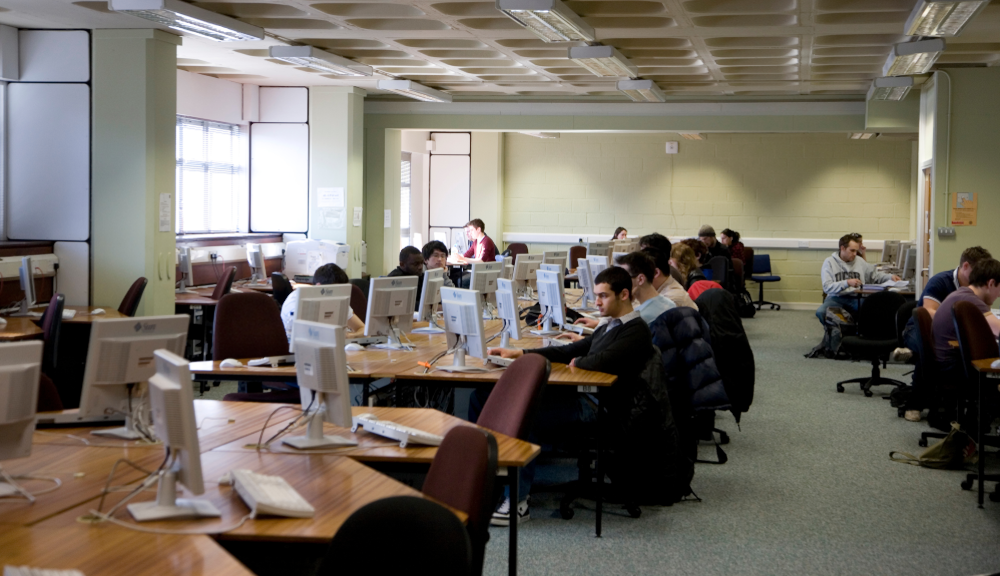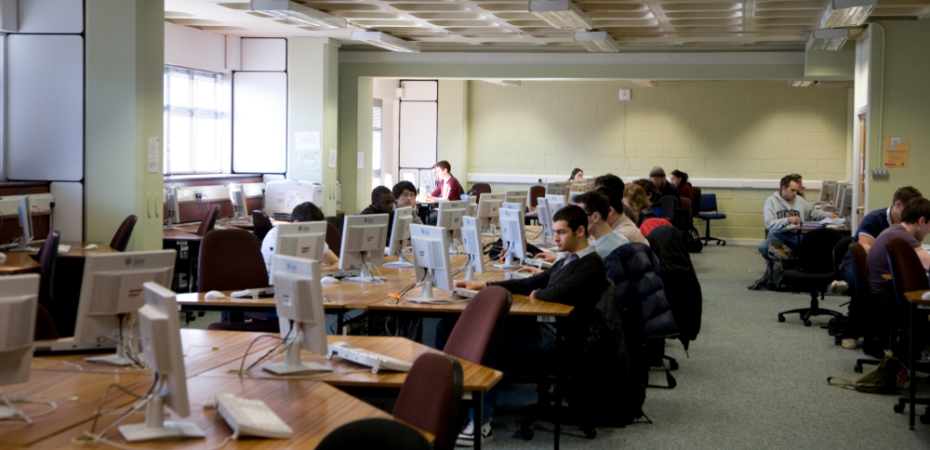
Linking back to Blog 1’↗️ in the series, not all occupations serve the ‘greater good’ of the individual or society; damage to environments and undesirable climate change has largely been credited to impacts from human (i.e., anthropogenic) occupations (Lieb, 2022)’↗️. ‘Sustainability’ and ‘sustainable development’-terms frequently applied interchangeably-are often contested concepts (Hoover and Harder, 2015)’↗️. Therefore, this blog will return to the simple, and longstanding definition of
“sustainable development is development that meets the needs of the present without compromising the ability of future generations to meet their own needs” (Brundtland, 1987, p16)↗️.
A full history and discourse of the climate situation is beyond the scope of this blog. However, the need to urgently tackle the unchecked potential for catastrophic impacts from environmental damage and climate change is asserted as one of the defining issues of these times (United Nations, 2023)↗️. Education, including Higher Education (HE) is considered by UNESCO as key to addressing this cataclysmic issue. Therefore, transformation through sustainable approaches to education, including the ‘Greening Education Partnership’ (UNESCO, 2023)↗️ (sometimes known as ‘greening’) is vital.
However, despite this urgency, UNESCO identify setbacks in progression of the greening initiative, not least impacts from the Covid-19 pandemic and a return in some contexts to use of fossil fuels. UNESCO claim “the forecast is not promising” (Galán-Muros, 2023, p4)↗️. Studies in academia also identify a worrying ‘’business as usual” approach (Thierry et al, 2023, p2)↗️, highlighting a lack of resolve to progress sustainability centred HE development.
As impacts from human occupations are identified as contributing significantly to the current climate emergency (Wagman, 2014)↗️, it is encouraging that the World Federation of Occupational Therapists (WFOT) sets out a framework to reimagine how human occupations could contribute to both sustainability and preparedness for disaster responses to the climate emergency (Shann et al, 2018)↗️. However, more recent work by occupational scientists, including that by Drolet et al (2020)↗️ and Ung et al (2020)↗️ goes further. While embracing the long-standing definition of sustainable development of Brundtland (1987, p16, above)↗️ occupational scientists also argue for intergenerational occupational justice i.e., the potential for future generations to engage equitably in meaningful occupations which would logically include occupations related to teaching and learning.
Linking back to previous blogs, the framework suggested by Ekland et al (2017)↗️ conceptualises occupations in contemporary contexts. Over and above this, emerging occupational science research focuses on an eco-ecology of occupations (for example see again Wagman, 2014)↗️ and posits that sustainable development should also consider the occupations of future generations. Looking to the UK context, this intergenerational way of thinking seems out of step with the direction of HE which, in recent times, has often been towards neo-liberalism, or marketisation. When followed, HE development has concentrated on growth and the outcomes of “individualism, managerialism, measurement and accountability” (Mutch and Tatebe, 2017, p221)↗️, far removed from considering the impacts of these outcomes on future generations.
Returning to the intention of the ‘’Through the Lens of Occupation↗️’’ series, which was “to consider embedded theoretical discourses of health and wellbeing between practice areas”, the emerging field of occupational ecology (Simó Algado, 2023)↗️ might be one way to imagine intergenerational sustainability from the perspective of health and teaching and learning. As with Simo Algado (2023)↗️, a case study approach will be applied here to bring to life the viewpoint of occupational ecology.
In the UK context, a ‘’digital surge’’ occurred during the Covid 19 pandemic (Pandey and Pal, 2020)↗️, and HE has since experienced rapid digital transformation (Laufer et al, 2021)↗️. While a ‘new normal’ in digital and technological advancements in HE is still establishing, digital education is often (logically) seen as a ‘green’ way forward as it requires, for example, fewer (non-green) commutes to university bases and less use of campus buildings (Selwyn, 2021)↗️. However, Selwyn (2021)↗️ also asserts that the expansion of ‘EdTech’ should recognise its contribution to unsustainable practices, including the generation of electronic waste, or ‘e-waste’, of which the UK is a significant contributor (Ismail and Hanafiah, 2020)↗️.
Simó Algado (2023)↗️ applied a case study from the work of Orisakwe et al (2019)↗️ who investigated e-waste. E-waste can be recycled domestically, but there is also a growing trend in transboundary e-waste recycling. Although e-waste recycling can create opportunities for income generation (Abalansa et al, 2021)↗️, Simó Algado (2023)↗️ identified multiple intergenerational occupational injustices from this.
Concentrating on transboundary recycling to Africa, where ‘informal’ e-waste recycling has already exposed workers to toxic chemicals from its degradation, Orisakwe et al’s article linked e-waste to health issues including ‘’headache, cough and chest pain, stomach discomfort, miscarriage, abnormal thyroid and reproductive function, reduction of gonadal hormone, and cancer” (2019, p. 190610)↗️. Chemicals from this e-waste were also identified as ‘endocrine disruptors’ (Simó Algado, 2023)↗️ with the potential to impact future generations. Impacts from poorer health then go on to negatively impact opportunities to participate in chosen occupations, and the foundation for occupational injustice is set.
HE could learn from this case study and stay true to Brundtland’s (1987)↗️ seminal definition. When HE has ambition to sustainably develop teaching and learning, impacts should also be considered from the perspective of not only global contexts, but also occupational justice in access to teaching and learning for future generations.
References
Abalansa, S., El Mahrad, B., Icely, J. and Newton, A., 2021. Electronic waste, an environmental problem exported to developing countries: The GOOD, the BAD and the UGLY. Sustainability, 13(9), p.5302.
Brundtland, G.H. (1987). Our Common Future World Commission on Environment and Development. Oxford University Press, Oxford.
Drolet, M.J., Désormeaux-Moreau, M., Soubeyran, M. and Thiébaut, S., 2020. Intergenerational occupational justice: Ethically reflecting on climate crisis. Journal of Occupational Science, 27(3), pp.417-431.
Eklund, M., Orban, K., Argentzell, E., Bejerholm, U., Tjörnstrand, C., Erlandsson, L.K. and Håkansson, C. (2017). The linkage between patterns of daily occupations and occupational balance: Applications within occupational science and occupational therapy practice. Scandinavian journal of occupational therapy, 24(1), pp.41-56.
Galán-Muros, V. (2023). General guidelines for the implementation of sustainability in higher education institutions. Paris, United Nations Educational, Scientific and Cultural Organization.
Ismail, H. and Hanafiah, M.M., 2020. A review of sustainable e-waste generation and management: Present and future perspectives. Journal of Environmental Management, 264, p.110495.
Hoover, E. and Harder, M.K. (2015). What lies beneath the surface? The hidden complexities of organizational change for sustainability in higher education. Journal of cleaner production, 106, pp.175-188.
Lieb, L.C. (2022). Occupation and environmental sustainability: A scoping review. Journal of Occupational Science, 29(4), pp.505-528.
Laufer, M., Leiser, A., Deacon, B., Perrin de Brichambaut, P., Fecher, B., Kobsda, C. and Hesse, F., 2021. Digital higher education: a divider or bridge builder? Leadership perspectives on edtech in a COVID-19 reality. International Journal of Educational Technology in Higher Education, 18, pp.1-17.
Mutch, C. and Tatebe, J., 2017. From collusion to collective compassion: Putting heart back into the neoliberal university. Pastoral Care in Education, 35(3), pp.221-234.
Orisakwe, O.E., Frazzoli, C., Ilo, C.E. and Oritsemuelebi, B., 2019. Public health burden of e-waste in Africa. Journal of Health and Pollution, 9(22), p.190610.
Pandey, N. and Pal, A., 2020. Impact of digital surge during Covid-19 pandemic: A viewpoint on research and practice. International journal of information management, 55, p.102171.
Selwyn, N., 2021. Ed-Tech Within Limits: Anticipating educational technology in times of environmental crisis. E-Learning and Digital Media, 18(5), pp.496-510.
Shann, S., Ikiugu, M., Whittaker, B., Pollard, N., Kahlin, I., Hudson, M., Galvaan, R., Roschnik, S. and Aoyama, M., 2018. Sustainability matters: Guiding principles for sustainability in occupational therapy practice, education and scholarship. Available from: https://wfot.org/resources/wfot-sustainability-guiding-principles [Accessed 04 December 2023].
Simó Algado, S., 2023. Occupational ecology: an emerging field for occupational science. Journal of Occupational Science, 30(4), pp.684-696.
Thierry, A., Horn, L., Von Hellermann, P. and Gardner, C.J., 2023, October. “No research on a dead planet”: preserving the socio-ecological conditions for academia. In Frontiers in Education (Vol. 8, p. 1237076). Frontiers.
UNESCO (2023). Greening Education Partnership. https://www.unesco.org/en/education-sustainable-development/greening-future [Accessed: 27 November 2023].
Ung, Y., Sarah, T.S., Drolet, M.J., Simó Algado, S. and Soubeyran, M., 2020. Building occupational therapy practice ecological based occupations and ecosystem sustainability: Exploring the concept of eco-occupation to support intergenerational occupational justice. World Federation of Occupational Therapists Bulletin, 76(1), pp.15-21.
United Nations (2023). Climate Change. Available from: https://www.un.org/en/global-issues/climate-change [Accessed: 27 November 2023]
Wagman, P., 2014. How to contribute occupationally to ecological sustainability: A literature review. Scandinavian journal of occupational therapy, 21(3), pp.161-165.
 Kirstin Stuart James
Kirstin Stuart James
Dr Kirstin Stuart James is currently on secondment as Deputy Programme Director within the Clinical Sciences Teaching Organisation, part of the College of Medicine and Veterinary Medicine at University of Edinburgh. As her substantive post, Kirstin is Senior Academic Coordinator/MSc Year Lead in Clinical Education where she teaches on online distance learning programmes for those involved in undergraduate and postgraduate education across the health and veterinary professions. She is a Senior Fellow of the Higher Education Academy. Kirstin is also a Senior Occupational Therapist in Urgent and Emergency Care with NHS Lothian. Kirstin is interested in the links between health and education, and how an understanding of occupation and occupational therapy can enrich teaching, learning and educational design, and support health though education. You can find Kirstin on Twitter (X) at @TherapyStatim↗️.


